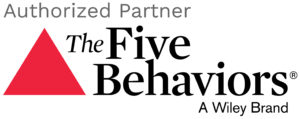Remember your first day at a new company? Maybe you started the company and were so excited you can hardly sleep. There was an unstoppable ambition fueled by a desire to succeed. Do you still have that desire? What changed?
A successful life is built on a daily commitment to optimism. Optimism has two parts. The first is maintaining a hopeful outlook before a decision is made; the other is dwelling on the most positive aspects of a decision afterwards. With all the life changes we experience, voluntary and involuntary, we must be optimistic.
The same goes for a successful sale career. We must maintain a positive outlook about our company, our team, our product, our prospects, and most importantly ourselves and the economy. Blaming the economy for a lack of sales is the start of a self-fulfilling prophesy with a bad outcome.
 Looking out your office window at the marketplace, what do you see? Here are few aspects to consider when you define the marketplace:
Looking out your office window at the marketplace, what do you see? Here are few aspects to consider when you define the marketplace:
Our Beliefs. Do you believe you live in a world of opportunities or do all you see is limitations? Perhaps you carry a pessimistic attitude in your tone and body language that is far from transparent on sales calls. The prospects you do talk with are curious, but you cause them to be cautious. They ask questions and seek information, but you miss the opportunity to uncover their reasons to buy from you and you miss a sale because of your attitude.
Our Objectives. Are the salespeople selling excuses to leadership? Later, at the sales meeting you are passing up excuses to management on your lack of sales production and complain about the lack of inventory, your price is too high, and how much time you have to spend on entering information into the CRM program. Seems your overly empathy mindset is siding more with the prospect’s excuses than the benefits your product offers. Which, of course, justifies the poor results. This causes management to wonder about your objectives when you meet with a prospect.
Our Behavior. Is there enough action to really assess what is needed to maximize market share? You have a phone, computer with Internet access and a database with over 3000 leads, but you don’t proactively connect with them. You are reactive to the distractions, but fail to focus on the daily behavior to fill the pipeline.
These are just three aspects to keep in mind when defining the marketplace and opportunities. It may be that the definition is built on a misperception. To change the results, we need to change our beliefs, objectives and behavior.
We must remain committed to the belief that there our people and prospects that want and need our products and services. Our outlook is filled and focused on opportunities and not limitations. The one that lives is the one we give time and attention.
In every conversation someone buys something and someone sells something. Management needs to stop buying the excuses salespeople are making for the lack of productivity. Point the salespeople to the marketplace and place in their hands the products to sell. Salespeople need to remember that the paycheck comes from the company, from the revenue that comes into the company from customers. Who is responsible for the revenue; the sales department, no one else.
What is the goal? Everyday salespeople must focus on the goal; everything else is irrelevant. The only way to close a sales is to open a conversation. Focus on filling the pipeline and conversations and closes will take care of themselves.
What is your mantra? Do you love to win or hate to lose? The most successful sports stars hate to lose and they do everything they can to make sure they don’t.
Decide to start. There is never a bad time to start a good habit. Invest in your time and you will see a return.








Pessimism is often a form of excuse-making or rationalization for personal inadequacy. But not always. I think productivity can be achieved by many means, and what works for one person may not be the same for another. Dyed in the wool pessimists are capable of achieving greatness in different fields of endeavor, including philosophy and the sciences. Personal happiness is another question entirely. Some people with a negative mindset are only truly happy when they’re unhappy. Which is to say they are never happy. But from a strictly SALES perspective, does the typical customer always know when the sales person is faking optimism? Usually? If so, what practical tricks or tips can the sales person employ to overcome this obstacle?
Good to hear from you, Charles. Thanks for posting your comments. You bring up some very interesting points. I hope a customer can determine if a salesperson is not sincere and honest. If this fake behavior is interpreted as optimistic, I would call it manipulation, with no benefit to the customer. Salespeople need to put their spotlight on the customer and focus on what they want and need, and not on what the salesperson has and offers. This approach takes a lot of pressure off the salesperson and make it easier for a favorable outcome for both.